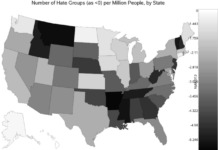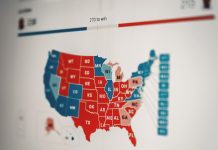Bernie Sanders has had quite the uphill climb so far on his path to be the Democratic nominee. Aside from Hillary Clinton opposing him at every turn, the mainstream media and even most of his fellow senators seem to be publicly supporting Clinton, as well. Even Elizabeth Warren, a senator from Massachusetts commonly considered a Bernie clone, has refrained from endorsing Sanders, likely on the grounds of possible damage to her career.
One might expect that after winning all three states last Saturday in what some might call a landslide victory that the mainstream media would be forced to acknowledge a big win for Bernie, and to their credit they largely did. But they still can’t resist taking a dig at him.
The media loves to rain on Bernie’s parade, maybe because he wants to make them pay all their taxes as companies and make the executives pay their share as well.
An article posted on Politico this week has the subtitle “Coming off big wins, the Sanders campaign struggled to explain how it can overcome Clinton’s lead.” If you actually read the article down about halfway though, the “confusion” they cite is about poor performance in the South, a traditionally conservative demographic that Bernie was unlikely to ever be able to win.
The media also likes to paint Clinton’s nomination as inevitable simply because she has a huge delegate lead. But does she really? Going into the Wisconsin primary, Clinton only has a 268 pledged delegate lead with over 2,000 delegates still up for grabs. The media, though, will say that she has an insurmountable 708 delegate lead due to her superdelegate support.
What they fail to mention is that she had the same superdelegate lead over Obama in 2008. What they also choose overlook is the fact that many of the superdelegates tend to switch their support to go along with the popular vote, realizing that if they didn’t there would be an uproar (as they did with Obama after he took the lead in pledged delegates). If Sanders manages to turn it around, and a lot of coming states seem to favor him in the polls and demographics, history would seem to dictate that the superdelegates would mostly back Sanders and hand him the nomination he rightly won.
Don’t get me wrong. Sanders still has quite the hill to climb. Statistically, he has to win 57% of the remaining delegates if you remove superdelegates from the equation. While that may seem tough, it’ll all really come down to how well he can do in New York next month. If he can prevent Hillary from running away with one of her home states, his favorability in many states going forward may allow him to pull through. It would be nice, though, if Hillary and the Republicans were his only opposition.
If Bernie Sanders does win narrowly, it will be interesting to see what the superdelegates do. Will they go with the popular vote or hand the nomination to the establishment favorite? We may see more unprecedented things happen in this election yet.
Featured image by Gage Skidmore, available under a Creative Commons 2.0 license.





